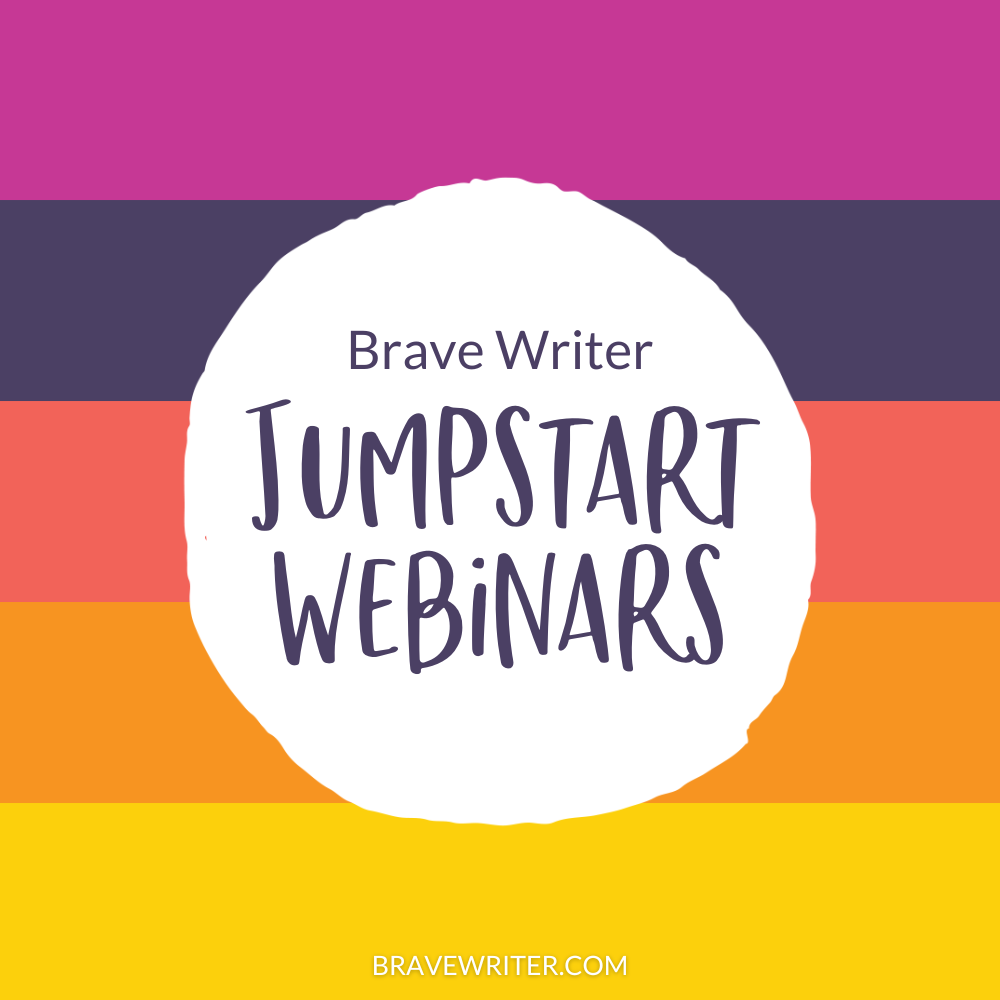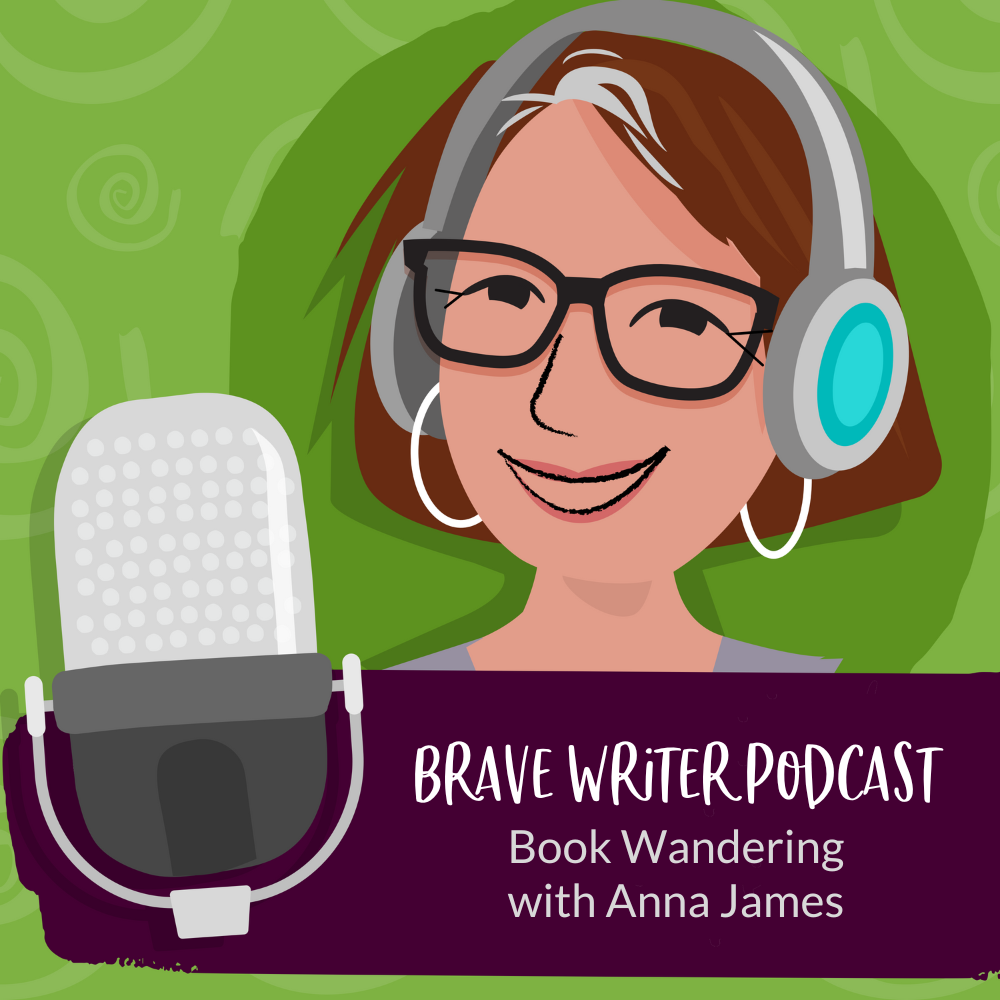
Here are four FREE webinars that help you understand both the philosophy and practice of Brave Writer’s literature + writing mechanics programs for ages 5-18.
Each webinar is jam-packed with information to help you be successful this coming school year, in addition to helping you understand Brave Writer materials.
Replays are below.
Why Teach Writing Mechanics with Living Literature?
The best books, the best words—allow your children to be bathed in high quality writing while they learn the mechanics and craft of writing.
REPLAY
Effective Teaching: Grammar, Punctuation, Spelling
Our programs offer a gentle, seamless way to build strong writing skills! Julie will show you how.
REPLAY
Literary Analysis & Writer’s Craft
To grow a writing voice, it helps to listen to and learn from a wide variety of writing voices. Not only that, literary analysis can be the tool that unlocks buried treasure in a book and we intend to help you dig!
REPLAY
Start Your Homeschool with Julie + Q&A
Sale Q&A plus big news: Start Your Homeschool with Julie!
Join Julie to answer your last questions before the sale ends. Also, Julie is announcing her brand new program for new homeschoolers, or those who want to change how they homeschool. Learn all the details by registering now. Space is limited.

























